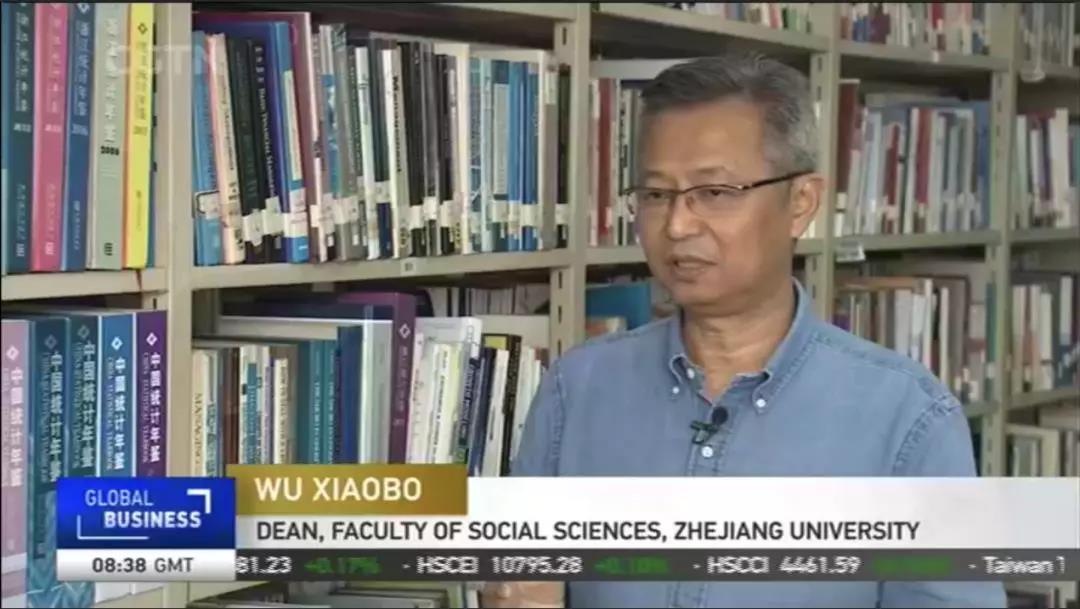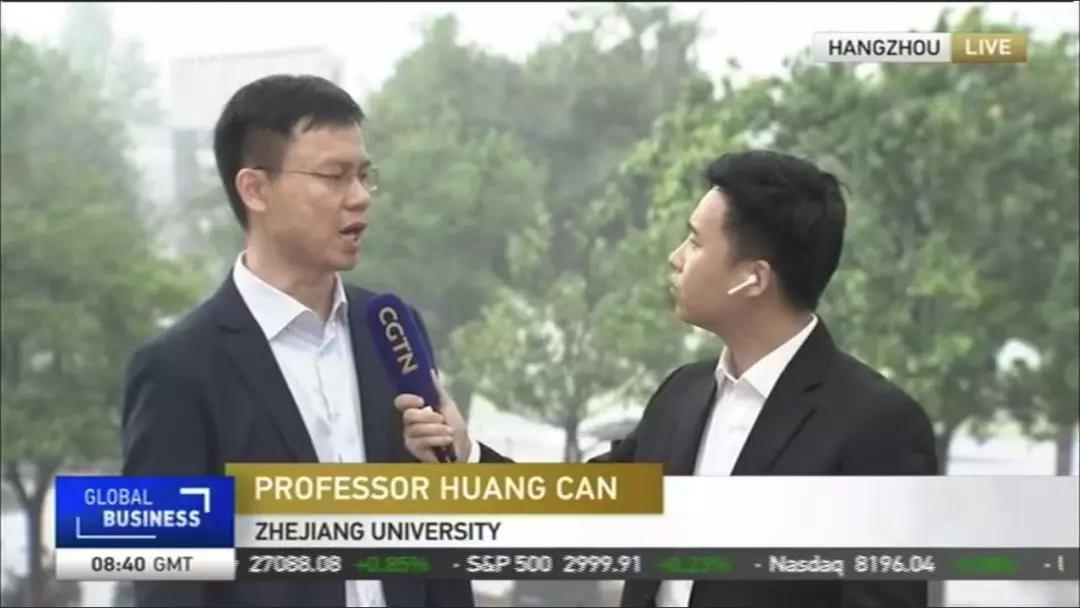Hangzhou, capital city of Zhejiang Province, is home to internet giants Alibaba and NetEase. And thousands of smaller firms want to catch up with their success. Prof. WU Xiaobo and Prof. HUANG Can were invited by CGTN to comment on digital economy and development of companies in Zhejiang.
Prof. WU said the ecosystem of Hangzhou‘s digital economy is very attractive to young talents and start-ups. "The efficiency is very high, though there arent a lot of differences between these companies. Fair play is very important. Thats why they must respect the market economy. Let the market economy mechanism work. I think thats the key here."

Zhejiang is not only famous for its internet companies, but also is the home to the large number of private companies. In terms of major highlight of Zhejiang’s private economy, Prof. HUANG commented “First of all, I think Zhejiang private economy is very strong, and it contributes to more than 50% of the tax revenue, 60% of GDP and 80% of the employment in the province. Second, many of Zhejiang private companies are on the global technology frontier, like Alibaba, Hikvision and Dahua Technology, those high-tech firms innovate their spares into emerging areas like 5G and internet.”

As most of the companies are embracing the latest technology for the economic growth, challenges are also emerging. “The first challenge companies are facing now is the macro-economic environment. Chinese economy generally slows down in recent years, and the Sino-US trade distribution gives pressure to medium and small companies since 2018. The second challenge is the continuing innovation and self-transformation. Many of the companies are operating in the traditional industries and running at a thin profit margin. When the economy slows down, they face the difficulty to continue to operate. I think they have to innovate and transform themselves to move into new areas and achieve growth.” said Prof. HUANG. And when it comes to how to build an ecosystem for smaller firms, Prof. HUANG suggested “Small and medium companies need to leverage the resource they have, for example, they can leverage the financial help provided by the provincial government to improve their performances. Also, they need to stick to the innovation and internationalized activities, open up themselves a new market and look for new opportunities.”
In 2018, Zhejiang recorded a GDP growth of 7.1%, with the digital economy as a key driving force. From public services to traditional industries, technology is expected to further upgrade many other sectors in the province and beyond.